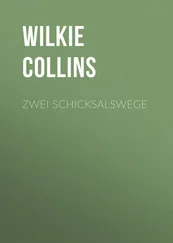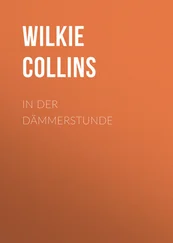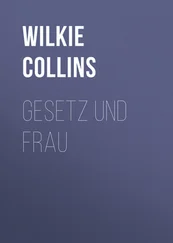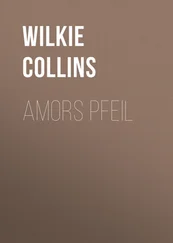Wilkie Collins - Little Novels
Здесь есть возможность читать онлайн «Wilkie Collins - Little Novels» весь текст электронной книги совершенно бесплатно (целиком полную версию без сокращений). В некоторых случаях можно слушать аудио, скачать через торрент в формате fb2 и присутствует краткое содержание. Год выпуска: 1999, Жанр: Классическая проза, на английском языке. Описание произведения, (предисловие) а так же отзывы посетителей доступны на портале библиотеки ЛибКат.
- Название:Little Novels
- Автор:
- Жанр:
- Год:1999
- ISBN:нет данных
- Рейтинг книги:5 / 5. Голосов: 1
-
Избранное:Добавить в избранное
- Отзывы:
-
Ваша оценка:
- 100
- 1
- 2
- 3
- 4
- 5
Little Novels: краткое содержание, описание и аннотация
Предлагаем к чтению аннотацию, описание, краткое содержание или предисловие (зависит от того, что написал сам автор книги «Little Novels»). Если вы не нашли необходимую информацию о книге — напишите в комментариях, мы постараемся отыскать её.
Little Novels — читать онлайн бесплатно полную книгу (весь текст) целиком
Ниже представлен текст книги, разбитый по страницам. Система сохранения места последней прочитанной страницы, позволяет с удобством читать онлайн бесплатно книгу «Little Novels», без необходимости каждый раз заново искать на чём Вы остановились. Поставьте закладку, и сможете в любой момент перейти на страницу, на которой закончили чтение.
Интервал:
Закладка:
I saw no more of the Captain that night.
The next morning he seemed to be quite himself again. He said to me, “Thomas, I am going sketching in Herne Wood. Take the paint-box and the rest of it, and put this into the carriage.”
He handed me a packet as thick as my arm, and about three feet long, done up in many folds of canvas. I made bold to ask what it was. He answered that it was an artist’s sketching umbrella, packed for traveling.
In an hour’s time, the carriage stopped on the road below Herne Wood. My master said he would carry his sketching things himself, and I was to wait with the carriage. In giving him the so-called umbrella, I took the occasion of his eye being off me for the moment to pass my hand over it carefully; and I felt, through the canvas, the hilt of a sword. As an old soldier, I could not be mistaken—the hilt of a sword.
What I thought, on making this discovery, does not much matter. What I did was to watch the Captain into the wood, and then to follow him.
I tracked him along the path to where there was a clearing in the midst of the trees. There he stopped, and I got behind a tree. He undid the canvas, and produced two swords concealed in the packet. If I had felt any doubts before, I was certain of what was coming now. A duel without seconds or witnesses, by way of keeping the town magistrates in the dark—a duel between my master and Mr. Varleigh! As his name came into my mind, the man himself appeared, making his way into the clearing from the other side of the wood.
What could I do to stop it? No human creature was in sight. The nearest village was a mile away, reckoning from the further side of the wood. The coachman was a stupid old man, quite useless in a difficulty, even if I had had time enough to go back to the road and summon him to help me. While I was thinking about it, the Captain and Mr. Varleigh had stripped to their shirts and trousers. When they crossed their swords, I could stand it no longer—I burst in on them. “For God Almighty’s sake, gentlemen,” I cried out, “don’t fight without seconds!” My master turned on me, like the madman he was, and threatened me with the point of his sword. Mr. Varleigh pulled me back out of harm’s way. “Don’t be afraid,” he whispered, as he led me back to the verge of the clearing; “I have chosen the sword instead of the pistol expressly to spare his life.”
Those noble words (spoken by as brave and true a man as ever breathed) quieted me. I knew Mr. Varleigh had earned the repute of being one of the finest swordsmen in Europe.
The duel began. I was placed behind my master, and was consequently opposite to his antagonist. The Captain stood on his defense, waiting for the other to attack. Mr. Varleigh made a pass. I was opposite the point of his sword; I saw it touch the Captain’s left shoulder. In the same instant of time my master struck up his opponent’s sword with his own weapon, seized Mr. Varleigh’s right wrist in his left hand, and passed his sword clean through Mr. Varleigh’s breast. He fell, the victim of a murderous trick—fell without a word or a cry.
The Captain turned slowly, and faced me with his bloody sword in his hand. I can’t tell you how he looked; I can only say that the sight of him turned me faint with terror. I was at Waterloo—I am no coward. But I tell you the cold sweat poured down my face like water. I should have dropped if I had not held by the branch of a tree.
My master waited until I had in a measure recovered myself. “Feel if his heart beats,” he said, pointing to the man on the ground.
I obeyed. He was dead—the heart was still; the beat of the pulse was gone. I said, “You have killed him!”
The Captain made no answer. He packed up the two swords again in the canvas, and put them under his arm. Then he told me to follow him with the sketching materials. I drew back from him without speaking; there was a horrid hollow sound in his voice that I did not like. “Do as I tell you,” he said: “you have yourself to thank for it if I refuse to lose sight of you now.” I managed to say that he might trust me to say nothing. He refused to trust me; he put out his hand to take hold of me. I could not stand that. “I’ll go with you,” I said; “don’t touch me!” We reached the carriage and returned to Maplesworth. The same day we traveled by post to London.
In London I contrived to give the Captain the slip. By the first coach the next morning I want back to Maplesworth, eager to hear what had happened, and if the body had been found. Not a word of news reached me; nothing seemed to be known of the duel in Herne Wood.
I went to the wood—on foot, fearing that I might be traced if I hired a carriage. The country round was as solitary as usual. Not a creature was near when I entered the wood; not a creature was near when I looked into the clearing.
There was nothing on the ground. The body was gone.
No. 4.—The Reverend Alfred Loring, Rector of Nettlegrove, testifies and says:—
I.
EARLY in the month of October, 1817, I was informed that Miss Bertha Laroche had called at my house, and wished to see me in private.
I had first been presented to Miss Laroche on her arrival, with her aunt, to take possession of her property at Nettlegrove Hall. My opportunities of improving my acquaintance with her had not been so numerous as I could have desired, and I sincerely regretted it. She had produced a very favorable impression on me. Singularly inexperienced and impulsive—with an odd mixture of shyness and vivacity in her manner, and subject now and then to outbursts of vanity and petulance which she was divertingly incapable of concealing—I could detect, nevertheless, under the surface the signs which told of a true and generous nature, of a simple and pure heart. Her personal appearance, I should add, was attractive in a remarkable degree. There was something in it so peculiar, and at the same time so fascinating, that I am conscious it may have prejudiced me in her favor. For fear of this acknowledgment being misunderstood, I think it right to add that I am old enough to be her grandfather, and that I am also a married man.
I told the servant to show Miss Laroche into my study.
The moment she entered the room, her appearance alarmed me: she looked literally panic-stricken. I offered to send for my wife; she refused the proposal. I entreated her to take time at least to compose herself. It was not in her impulsive nature to do this. She said, “Give me your hand to encourage me, and let me speak while I can.” I gave her my hand, poor soul. I said, “Speak to me, my dear, as if I were your father.”
So far as I could understand the incoherent statement which she addressed to me, she had been the object of admiration (while visiting Maplesworth) of two gentlemen, who both desired to marry her. Hesitating between them and perfectly inexperienced in such matters, she had been the unfortunate cause of enmity between the rivals, and had returned to Nettlegrove, at her aunt’s suggestion, as the best means of extricating herself from a very embarrassing position. The removal failing to alleviate her distressing recollections of what had happened, she and her aunt had tried a further change by making a tour of two months on the Continent. She had returned in a more quiet frame of mind. To her great surprise, she had heard nothing of either of her two suitors, from the day when she left Maplesworth to the day when she presented herself at my rectory.
Early that morning she was walking, after breakfast, in the park at Nettlegrove when she heard footsteps behind her. She turned, and found herself face to face with one of her suitors at Maplesworth. I am informed that there is no necessity now for my suppressing the name. The gentleman was Captain Stanwick.
Читать дальшеИнтервал:
Закладка:
Похожие книги на «Little Novels»
Представляем Вашему вниманию похожие книги на «Little Novels» списком для выбора. Мы отобрали схожую по названию и смыслу литературу в надежде предоставить читателям больше вариантов отыскать новые, интересные, ещё непрочитанные произведения.
Обсуждение, отзывы о книге «Little Novels» и просто собственные мнения читателей. Оставьте ваши комментарии, напишите, что Вы думаете о произведении, его смысле или главных героях. Укажите что конкретно понравилось, а что нет, и почему Вы так считаете.











